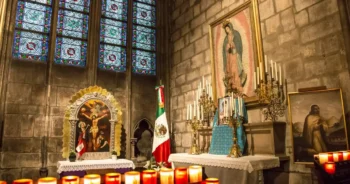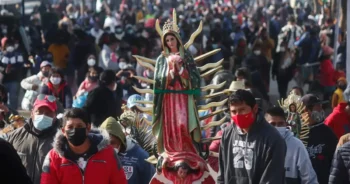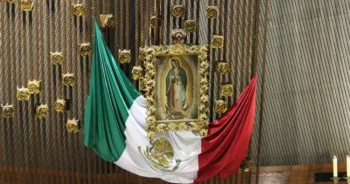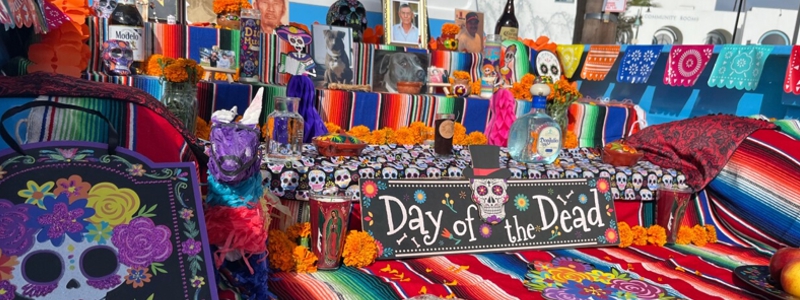Our Lady of Guadalupe: Mexico’s Sacred Icon
Celebration day: December 12th.
Estimated reading time: 4 minutes
The story of Our Lady of Guadalupe begins in December 1531 when Juan Diego, a native Aztec convert to Christianity, encountered a vision of the Virgin Mary on Tepeyac Hill near Mexico City. According to tradition, the Virgin appeared as a dark-skinned woman speaking Nahuatl, Juan Diego’s native language.
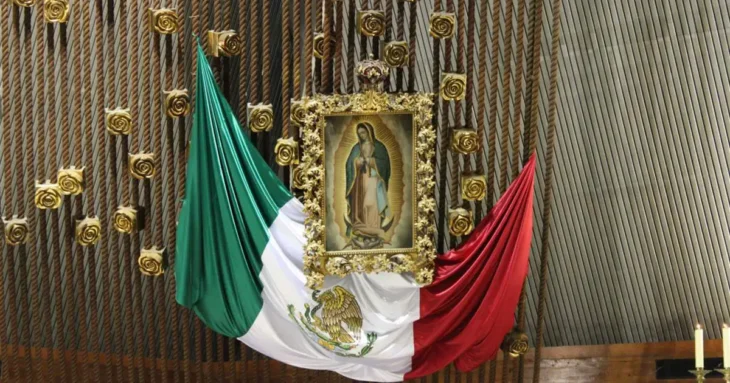
The Miraculous Apparition
During four appearances, the Virgin requested a church be built in her honor. When local bishop Juan de Zumarraga demanded proof, the Virgin instructed Juan Diego to gather roses from the typically barren hillside. Upon presenting these unseasonable Castilian roses to the bishop, Juan Diego unfurled his tilma (cloak), revealing the image of the Virgin miraculously imprinted on the fabric.
The Sacred Image
The image shows the Virgin wearing traditional Aztec royal clothing with Christian symbolism:
- Her blue-green mantle covered with stars
- A black sash indicating pregnancy
- Her stance over a crescent moon
- Rays of sunlight behind her
Cultural Impact
Our Lady of Guadalupe has become:
- The patron saint of Mexico
- A powerful symbol of Mexican identity and faith
- A unifying force between indigenous and Spanish cultures
- The most visited Catholic shrine in the Americas
The basilica housing Juan Diego’s tilma in Mexico City receives millions of pilgrims annually, particularly around her feast day on December 12th. The image has endured for nearly 500 years, defying scientific explanation for its preservation on simple cactus fiber cloth.
Historical Significance
The apparition occurred during a crucial period in Mexican history, as the Spanish conquest had devastated native populations and cultures. Our Lady of Guadalupe represented a bridge between two worlds, incorporating both Catholic and indigenous symbolic elements. This syncretism helped facilitate the widespread conversion of indigenous peoples to Christianity while preserving aspects of their cultural identity.
Modern Relevance
Today, Our Lady of Guadalupe remains a potent symbol of:
- Mexican national identity
- Religious devotion
- Social justice and dignity for the marginalized
- Cultural pride and heritage
Her image appears throughout Mexico and Latin America on everything from church altars to street art, demonstrating her enduring significance in both religious and secular contexts.
Our Lady of Guadalupe is celebrated on December 12th in Mexico. While not an official federal holiday, it holds deep cultural and religious significance throughout the country. On this date, banks in Mexico are closed, not specifically for the religious observance, but because it coincides with the Day of the Banking Employee (Día del Empleado Bancario).
